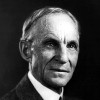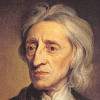“ Whatever practical principle is innate, cannot but be known to every one to be just and good. It is therefore little less than a contradiction to suppose, that whole nations of men should, both in their professions and practice, unanimously and universally give the lie to what, by the most invincible evidence, every one of them knew to be true, right, and good. ”
John Locke, An Essay Concerning Human Understanding (1689). copy citation
| Author | John Locke |
|---|---|
| Source | An Essay Concerning Human Understanding |
| Topic | contradiction evidence |
| Date | 1689 |
| Language | English |
| Reference | |
| Note | |
| Weblink | http://www.gutenberg.org/files/10615/10615-h/10615-h.htm |
Context
“and therefore must every one of them apprehend from others all the contempt and abhorrence due to one who professes himself void of humanity: and one who, confounding the known and natural measures of right and wrong, cannot but be looked on as the professed enemy of their peace and happiness. Whatever practical principle is innate, cannot but be known to every one to be just and good. It is therefore little less than a contradiction to suppose, that whole nations of men should, both in their professions and practice, unanimously and universally give the lie to what, by the most invincible evidence, every one of them knew to be true, right, and good. This is enough to satisfy us that no practical rule which is anywhere universally, and with public approbation or allowance, transgressed, can be supposed innate.—But I have something further to add in answer to this objection.”
source



